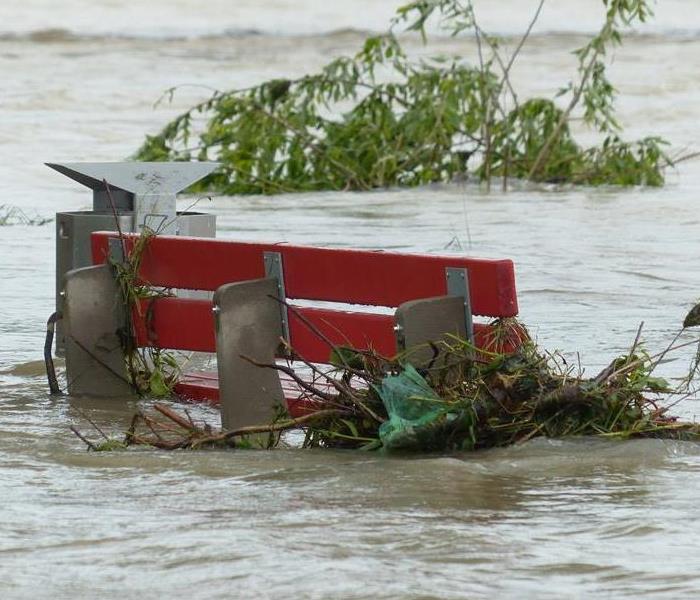Hazards of Storm water Flooding
9/30/2021 (Permalink)
Almost a month after the remnants of Hurricane Ida hit NJ, many property owners are still dealing with the mess. We have been working 7 days a week to help as many people as possible. Our teams are bolstered by the support of multiple SERVPRO teams from out of state, and it is still not enough. Many homeowners have been tempted to handle the cleanup themselves but there are some serious considerations if you are going to do so.
First, make sure the area is safe. Downed wires and electrocution hazards need to be addressed before any work is done. If significant flooding has occurred, both the electrical service and gas should be shut off to prevent an explosion or electrocution. Sharp items such as broken glass must be removed to prevent puncture wounds and cuts which are highly prone to infection. Be aware of any displaced animals such as snakes. Always wear PPE such as rubber boots, gloves, and goggles.
Second, floodwater is contaminated. A river that has overflowed is carrying more than just the usual stream water. Flooding has washed contaminants downstream which may include:
- Human and livestock waste
- Household, medical, and industrial hazardous waste (chemical, biological, and radiological)
- Coal ash waste that can contain carcinogenic compounds such as arsenic, chromium, and mercury
- Other contaminants that can lead to illness
- Physical objects such as lumber, vehicles, and debris, or needles
- Wild or stray animals such as rodents and snakes
Third, exposure to contaminated floodwater can cause:
- Wound infections
- Skin rash
- Gastrointestinal illness
- Tetanus
If you experience any of these symptoms seek immediate medical attention.
For more information on the health concerns after a flood visit the CDC website at Floodwater After a Disaster or Emergency | CDC





 24/7 Emergency Service
24/7 Emergency Service
